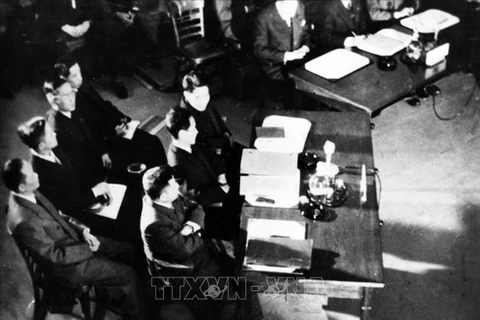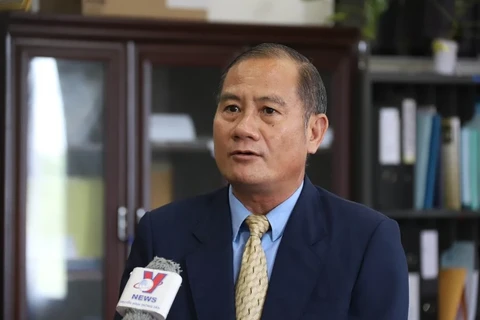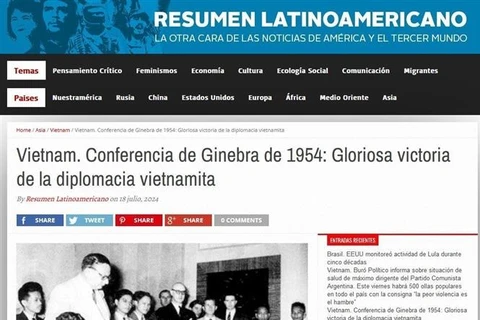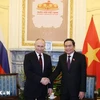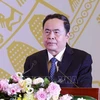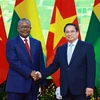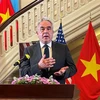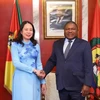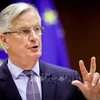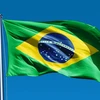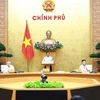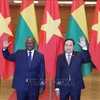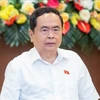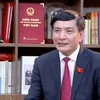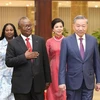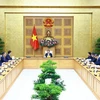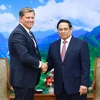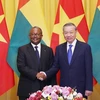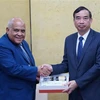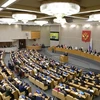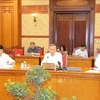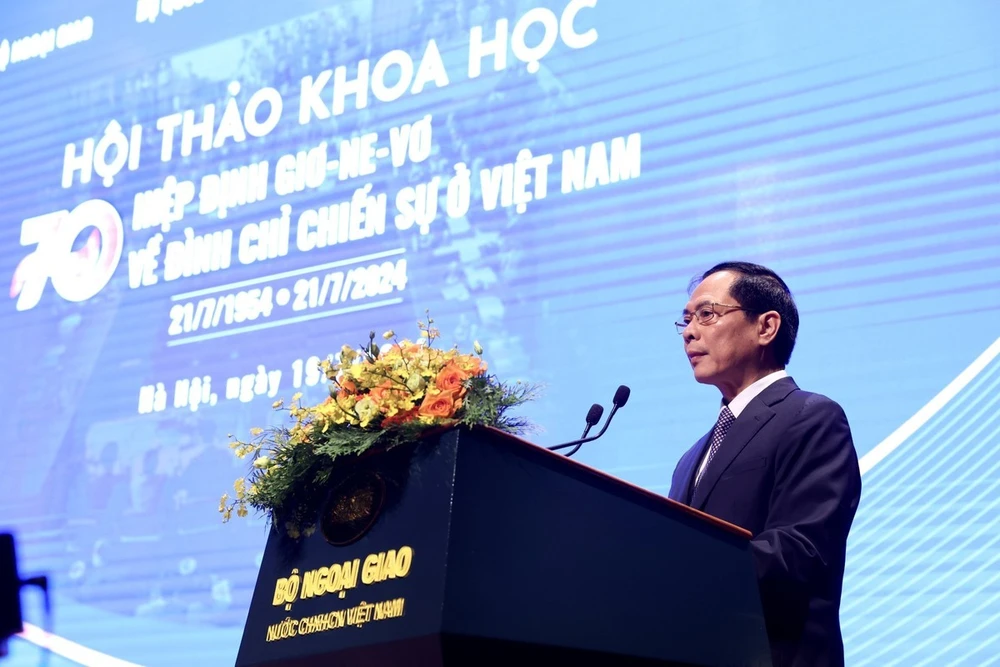
Hanoi (VNA) - The Ministry of Foreign Affairs, the Ministry of National Defence and the Vietnam Academy of Social Sciences (VASS) on July 19 co-organised a scientific seminar entitled "70 years of the Geneva Agreement on the Cessation of Hostilities in Vietnam" (July 21, 1954 - 2024).
The seminar highlighted the historical significance of the Geneva Agreement to the struggle for national liberation of the Vietnamese people and people around the world. It also summarised valuable lessons that are still useful to the cause of national construction, development and protection.
It also created an opportunity to recognise and honour the great contributions of Vietnam's diplomatic sector, including the contributions of witnesses who negotiated, signed and contributed to the success of the Geneva Conference which opened a new stage for the revolutionary cause of the Party and the nation.
Speaking at the seminar, Minister of Foreign Affairs Bui Thanh Son emphasised that the 1954 Geneva Agreement on the Cessation of Hostilities in Vietnam was an important historical milestone in the cause of national liberation and reunification.
The Geneva Conference was the first multilateral forum that Vietnam took part in together with the direct participation and negotiations of major countries.
Participating such forum for the first time, the Vietnamese diplomatic sector affirmed the position and internal strength of a nation with thousands of years of history as well as its strong will to protect the country's independence and the diplomacy was imbued with the quintessence of national culture and Ho Chi Minh's diplomatic ideology, style, and art.
Son affirmed that the process of negotiating, signing, and implementing the Geneva Agreement was a handbook containing many valuable lessons in foreign affairs, demonstrating the unique identity of the Vietnamese diplomatic school and foreign affairs.
Such lessons can contribute practically to the studying and perfecting the theoretical basis and methods for foreign affairs and diplomacy in the Ho Chi Minh era as well as building, perfecting and implementing the Party's foreign policy in new development stages of the country, Son said.
Politburo member, President of the Ho Chi Minh National Academy of Politics (HCMA) and Chairman of the Central Theory Council Nguyen Xuan Thang said that promoting the great power and influence of the Dien Bien Phu Victory, the Geneva Agreement was the pinnacle of the Vietnamese diplomacy in the resistance war against the French colonialists.
The agreement also affirmed the righteousness of the struggle for national liberation and the friendship tradition and peace-loving spirit of the Vietnam people, he said.
The 1946 Preliminary Agreement signed on March 6, 1946, the Provisional Agreement on September 14, 1946, and the Geneva Agreement on July 21, 1954 witnessed the maturity and growth of the revolutionary diplomacy in the Ho Chi Minh era together with turning-point changes in the position of the Democratic Republic of Vietnam on the global stage, the official said.
Thang emphasised that, for the first time in history, major countries participating in the Geneva Conference recognised and committed to respecting the basic national rights of sovereignty, independence, unity, and territorial integrity of Vietnam, Laos and Cambodia./.
